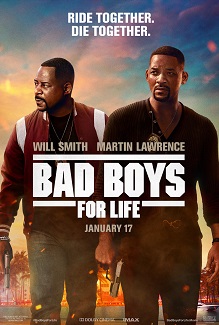 The idea of forgiving an abuser is not an easy one…yes we’re jumping right into the meat here. A Beautiful Day In The Neighbourhood wants these discussions to be had so there’s no point avoiding them. Our protagonist Lloyd Vogel (Matthew Rhys) is a journalist tasked with writing a profile on legendary children’s presenter Mr Rogers (Tom Hanks). Lloyd himself is not a fan of Mr Rogers and could be described as somewhat cynical of a person. To the film’s credit they strike a healthy balance between sceptical pessimist and open-minded friend. He’s not dismissive of Roger’s ways, though he does question both the honesty behind it and results, the film certainly falls on Rogers side, but does so by presenting us the information through Lloyds perspective, particularly due to his personal history which made him what he is today.
The idea of forgiving an abuser is not an easy one…yes we’re jumping right into the meat here. A Beautiful Day In The Neighbourhood wants these discussions to be had so there’s no point avoiding them. Our protagonist Lloyd Vogel (Matthew Rhys) is a journalist tasked with writing a profile on legendary children’s presenter Mr Rogers (Tom Hanks). Lloyd himself is not a fan of Mr Rogers and could be described as somewhat cynical of a person. To the film’s credit they strike a healthy balance between sceptical pessimist and open-minded friend. He’s not dismissive of Roger’s ways, though he does question both the honesty behind it and results, the film certainly falls on Rogers side, but does so by presenting us the information through Lloyds perspective, particularly due to his personal history which made him what he is today.We’re told very early on about said history, that his father was an absent alcoholic who left them when he was young and when his mother was suffering a very painful death. Years later his father has now come back into his life in attempts to make amends. Whenever this subject matter is brought up and discussed in the presents or Mr Rogers it’s incredibly powerful, and greatly reflects the type of man he was and how he would respond to an issue like this, to treat it with the intelligence, kindness and dignity needed to actually help someone. This doesn’t just come to the film’s benefit of making it a faithful adaptation but also an intelligent film in helping not only the protagonist but the audience understand their own pain. There’s a particularly powerful sequence where the film comes to a complete halt for a whole 60 seconds to let its characters reflect, and in turn the audience. That type of quite composure is not something often found in most films, where its said its message and now it forces the audience to reflect on it while the film is still engaging them.
That being said, this is where the more difficult aspects of the film come from. Whenever anyone else tries to “help” Lloyd with his issues, its incredibly poor. Near the beginning Lloyd is packing for his sister’s wedding, and its only now when its too late to backout does his wife Andrea (Susan Kelechi Watson) admit that his father Jerry (Chris Cooper) is going to be there, at said wedding his father gets drunk and the two get in a fight. Very soon after than Lloyd’s dad then ambushes him outside of his own apartment and waits out there for several days, only eventually again for Andrea to go behind Lloyd’s back and invite him up, again ambushing him, trying to force this recollection, and when Lloyd refuses to partake they treat him like he’s the bad guy. None of this is healthy or helpful, they force Lloyd into this situation, our first scene with Jerry establishes that he hasn’t changed his behaviour or fixed his issues, yet they constantly treat Lloyd like he is at fault for not giving him a chance, when it is not his responsibility to make things better.
*Minor Spoilers Ahead*
Jerry has shown no evidence that he is improved, and everyone’s treatment of Lloyd for not putting the effort in is victim blaming. An element that’s established early on is that Lloyd doesn’t drink alcohol, presumably due to his father’s history of substance abuse, and yet later on in the film after this forced catharsis is taking place, the two of them share a drink as if this is supposed to be an endearing moment? That Lloyd partaking in one of his father’s vices is a sign that their relationship is healing? This entire plot is tone deaf of the highest order, especially in a film that has such a heavy focus on smart conversations and understandings of ones own emotions and conflicts, and is able to handle these issues so incredibly well in certain scenes that it’s hard to believe these are from the same film.
Not everyone can be a Mr Rogers, and if this was some attempt to highlight him as a person not by exclusively representing his qualities but by making every other person appear emotionally inane in contrast then it did more to harm the film than help it.
-Danny


